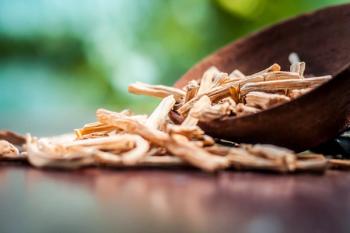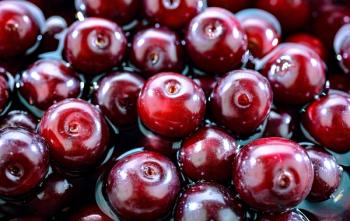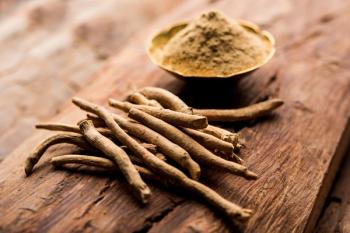
- Nutritional Outlook Vol. 17 No. 9
- Volume 17
- Issue 9
Guayusa Is More Than Caffeine
The South American leaf is a growing choice for tea and drink launches. But what’s in guayusa besides caffeine?
In the hustle for clean-label caffeine ingredients, tea and energy drink makers are starting to get their hands on guayusa (Ilex guayusa), a holly plant and close relative of yerba mate (Ilex paraguariensis). This South American leaf contains caffeine-less than coffee, and more than green tea-but there’s a deeper story to be told for guayusa, and much, but not all of it, is centuries old.
Folklore
Guayusa is a plant full of amusing folklore. Before developed markets discovered guayusa, indigenous people living in or near the Amazon jungle, where guayusa still grows exclusively, gave this plant a mystical role in daily life.
According to guayusa powder supplier Ecuadorian Rainforest LLC (Belleville, NJ), guayusa was known locally as “Night Watchman,” due to its awakening ability (which we now understand as being at least partly related to guayusa’s caffeine content). Some traditional healers contend that drinking guayusa tea can help ward off snakes, because snakes can sense guayusa’s presence. On the lighter side of things, guayusa tea is still just a morning ritual for families.
The little details of guayusa’s origin are tucked into what experts say are just small regions of the Amazon rainforest, where the rainforest lies closest to the Equator, but because manufacturers around the world now have at least limited access to guayusa, opportunities do exist to share guayusa’s very peculiar history with shoppers thousands of miles away.
Contents
Storytelling aside, the nutritional contents of guayusa are, at the end of the day, what make guayusa most marketable.
“The great thing about guayusa is that it’s more than just caffeine,” says Randy Kreinbrink, director of marketing for guayusa powder supplier BI Nutraceuticals (Long Beach, CA). As much as industry is just beginning to unravel the components of guayusa, it appears certain that guayusa at least contains flavonoids, polyphenols, saponins, caffeine, and L-theanine. Found in other plants such as green tea, L-theanine is widely regarded for its relaxative effects on the brain, and its presence in guayusa may explain why numerous suppliers characterize guayusa as having a “calm energy.”
Leaf Stages
For all of the appealing compounds that can be found in guayusa, one need only steep guayusa leaves.But the optimal conditions for steeping guayusa have not yet been decided on. This uncertainty is what keeps guayusa powder supplier Applied Food Sciences (Austin, TX) hard at work.
“If you just boil the leaves, you’ll get the tea,” says Jackson Zapp, vice president of marketing for Applied Food Sciences (Austin, TX). “But, we’re looking at the green leaves, the withered leaves, the different stages of the plant, and we’re finding what different compounds are in each of these stages.”
Early trial and error at Applied Food Sciences suggests that there are indeed phytochemical differences in each of these plant conditions. Manufacturers eager to one day use guayusa for nutrients other than caffeine will have their choice between a range of tailor-made guayusa ingredients. And as phytochemical contents change in the plant, so does guayusa’s flavor. “The more you wither the leaf, the more you’re going to get a traditional black tea flavor,” says Zapp.
Guayusa Powder
In this early stage of global guayusa trade, ingredient suppliers have settled on guayusa powder, wherein the guayusa leaves are dried, sterilized, and milled into a water-soluble substance. Regardless of the form guayusa takes in finished health products, though, guayusa leaves are sure to find a comfortable place amongst the green teas, coffee beans, kola nuts, and guarana seeds of today’s caffeine market.
Articles in this issue
almost 11 years ago
Key Technologies for Dietary Supplement Quality Controlabout 11 years ago
Blood Sugar Dietary Supplement, Food Products in the Mainstream Marketabout 11 years ago
Doctors and Dietary Supplements: Using, Recommending, Sellingabout 11 years ago
Who Is the Blood Sugar-Management Dietary Supplement Customer?about 11 years ago
Dietary Supplement Packaging: The Power of Graphicsabout 11 years ago
More FTC Heat on Weight-Loss Dietary Supplements?about 11 years ago
What Studies Say about Hemp CBDabout 11 years ago
Celebrating DSHEA, with Cautionover 11 years ago
New DMAA-Like Adulterant Found in Dietary SupplementsNewsletter
From ingredient science to consumer trends, get the intel you need to stay competitive in the nutrition space—subscribe now to Nutritional Outlook.




